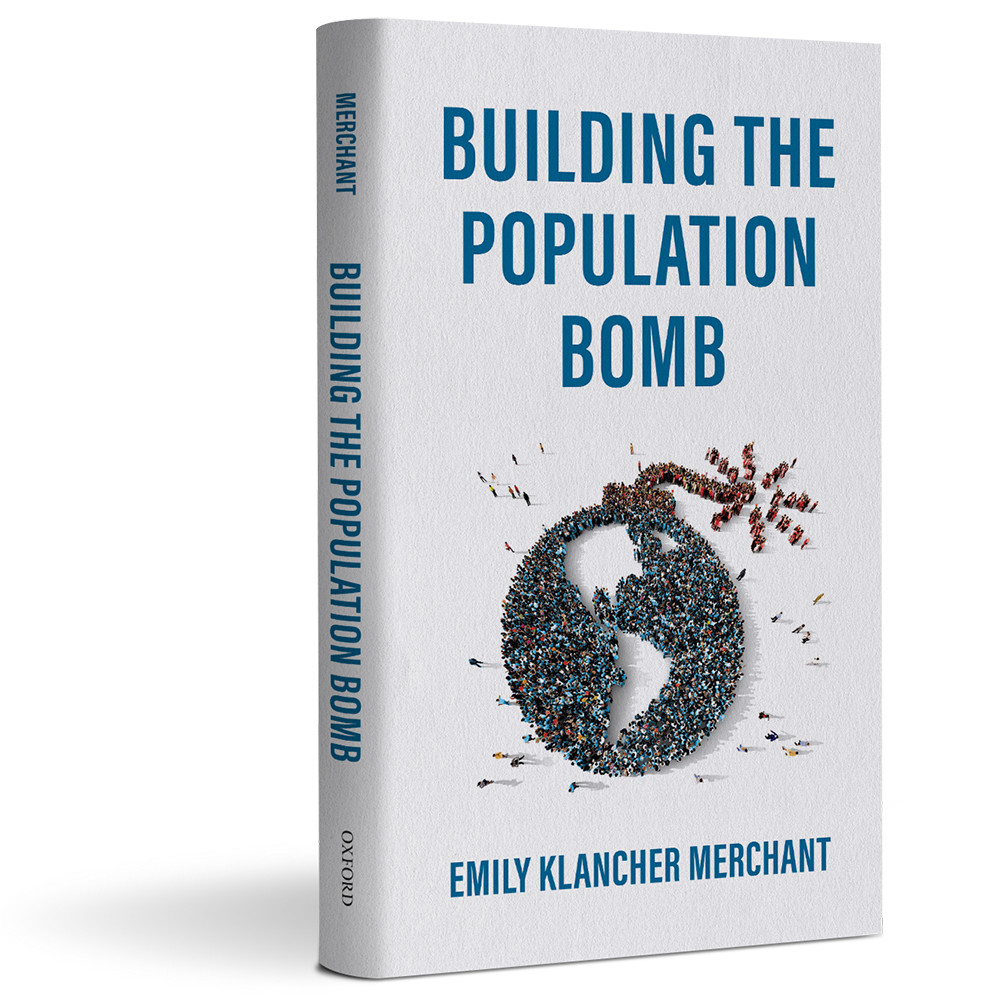Building the Population Bomb
Published by Oxford University Press
Winner of:
Merle Curti Intellectual History Award, Organization of American Historians
Otis Dudley Duncan Award, Population Section, American Sociological Association
Across the twentieth century, Earth’s human population grew from 1.6 billion people in 1900 to 6.1 billion in 2000. It also began to take the blame for some of the world’s most serious problems, from global poverty to environmental degradation, and became an object of intervention for governments and nongovernmental organizations.
But the links between population, poverty, and pollution were neither obvious nor uncontested. Building the Population Bomb tells the story of the twentieth-century population crisis by examining how scientists, philanthropists, and governments across the globe came to define the rise of the world’s human numbers as a problem. It narrates the history of demography and population control in the twentieth century by examining alliances and rivalries between social scientists, philanthropists, and global leaders, and explains how these groups forged a consensus that promoted fertility limitation at the expense of women, people of color, the world’s poor, and the Earth itself.
As the world’s population continues to grow—with the United Nations projecting 11 billion people by the year 2100—Building the Population Bomb steps back from the conventional population debate to demonstrate that our anxieties about future population growth are not obvious but learned. Ultimately, this critical volume shows how population growth itself is not a barrier to economic, environmental, or reproductive justice; rather, it is our fear of population growth that distracts us from the pursuit of these urgent goals.
Reviews
“Emily Klancher Merchant employs historical knowledge, deep understanding of the role of science and technology in social change, and demographic technical expertise to elucidate the contentious story of panic versus calm in the debate about population growth. Building the Population Bomb provides important lessons for understanding the past and viewing the future.”
“In this brilliant and important book, Emily Klancher Merchant shows how population growth came to be seen as one of the modern world’s most pressing problems. Merchant’s story is masterful—a precise, compelling recounting of the rise of a scientific problem at the center of global politics. This is a must read in the history of science, intellectual history, the history of sexuality, diplomatic history, and for anyone who wants to understand the twentieth century.”
“In this concise and memorable volume, Emily Klancher Merchant explores the history of population science in its sociopolitical, economic, ideological, and ethical dimensions. Building the Population Bomb offers a comprehensive interrogation of the data and assumptions at the heart of twentieth-century demographic work, which fueled popular concerns about overpopulation. Through deep research and crystalline prose, her book presents a probing analysis of this far-reaching phenomenon, from Margaret Sanger and the eugenics movement, through the impacts of the Cold War on social science education and the practice of demography, to Paul Ehrlich’s vision of collapsing civilizations in his seminal 1968 book The Population Bomb. Through an unflinching examination of the context and circumstances in which a variety of scientists, academics, philanthropists, activists, and politicians advanced ideas about a global population crisis, Merchant destabilizes the claim that unchecked population growth drives poverty and environmental exploitation. This is an important work of intellectual history and a sobering account of the real-world consequences (and lasting legacies) of a powerful set of ideologies about global regions, social groups, sex, reproduction, and resources masquerading as neutral and inescapable scientific fact.”

